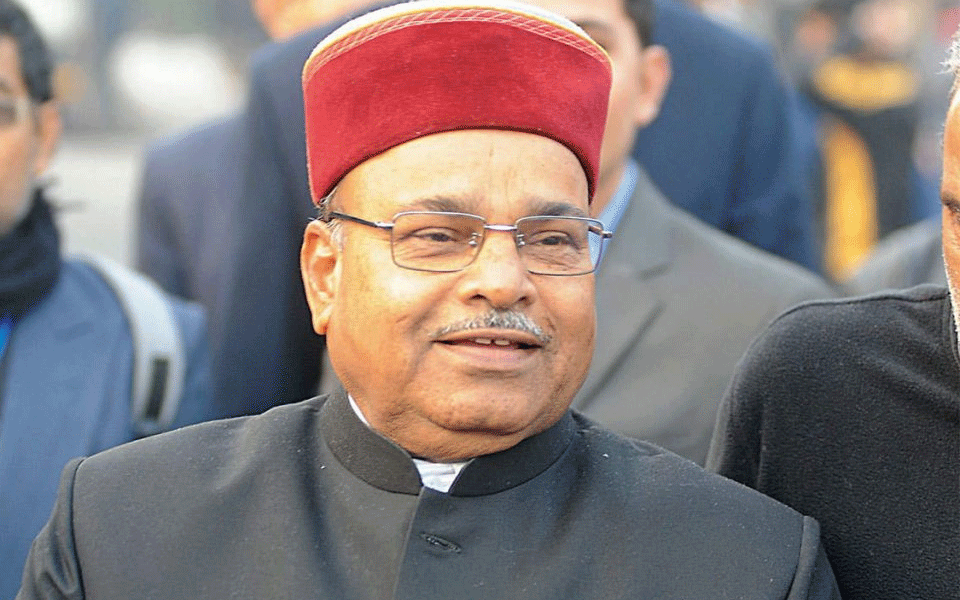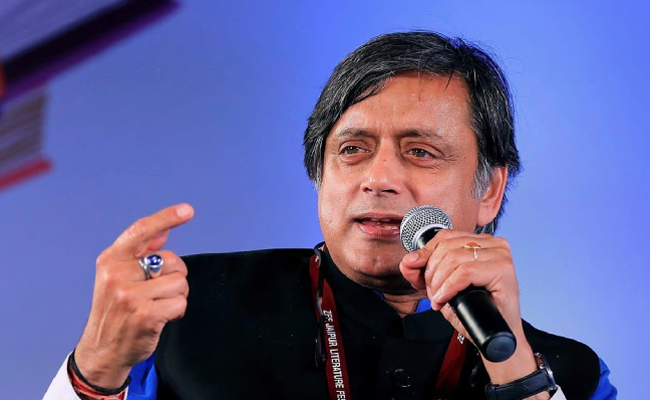Bengaluru, May 17: Karnataka Governor Thaawarchand Gehlot on Tuesday gave his assent to the Ordinance that gave effect to the Karnataka Right to Freedom of Religion Bill, 2021, commonly known as the anti-conversion bill.
The bill was passed in the Assembly in December last year but was pending before the Council where the ruling BJP is one short of a majority. The Karnataka government promulgated the Karnataka Protection of Right To Freedom of Religion Ordinance on May 12.
The Governor's nod came a day after the Bengaluru Archbishop, Peter Machado along with a Christian delegation called on him requesting him to hold back the ordinance and not to give his approval.
According to the government note, the ordinance is for protection of right to freedom of religion and prohibition of unlawful conversion from one religion to another by misrepresentation, force, undue influence, coercion, allurement or by any fraudulent means.
"Whereas the Karnataka Legislative Assembly and the Karnataka Legislative Council are not in session and the Honourable Governor of Karnataka is satisfied that the circumstances exist which render it necessary for him to take immediate action to promulgate the Ordinance for the purposes hereinafter appearing, the gazzette notification read.
The ordinance says that any converted person, his parents, brother, sister or any other person who is related to him by blood, marriage or adoption or in any form associated or colleague may lodge a complaint of such conversion.
The violators will be punished with imprisonment of either description for a term of three years but which may extend to five years and shall also be liable to fine of Rs 25,000.
With regard to mass conversion, the punishment stretches up to the imprisonment of either description for a term of three years but which may extend to ten years and "shall also be liable to fine of Rs one lakh".
"The court shall also grant appropriate compensation payable by the accused to the victim of said conversion which may extend to maximum of Rs five lakh and shall be in addition to fine," the ordinance read.
Further, whoever having been previously convicted of an offence under this ordinance is again convicted of an offence punishable under this ordinance will be punished with imprisonment of either description for a term of not less than five years and will also be liable to a fine of Rs two lakh.
The offences committed under the ordinance are cognisable and non-bailable.
Whoever desires to convert his religion, will have to give a declaration in Form-I at least thirty days in advance to the District Magistrate or the Additional District Magistrate specially authorised by the District Magistrate of his residing district or place of birth within the state.
The religious converter who performs conversion ceremony for converting any person of one religion to another religion, should give thirty days advance notice in Form-2 of such intended conversion, to the District Magistrate or the Additional District Magistrate, specially authorised by the District Magistrate of the district from where the proposed converter hails, the ordinance said.
The District Magistrate, after receiving the information will notify proposed religious conversion on the notice board of the office of the District Magistrate and in the office of the Tahsildar calling for objections.
If any objections are received within 30 days, he will get an inquiry conducted through officials of Revenue or Social Welfare Department with regard to genuine intention, purpose and cause of the proposed conversion.
"If the District Magistrate comes to a conclusion based on the said inquiry of the commission of an offence under this Ordinance, he shall cause the concerned police authorities to initiate criminal action for contravention of the provisions of section 3," the ordinance said.
Let the Truth be known. If you read VB and like VB, please be a VB Supporter and Help us deliver the Truth to one and all.
New Delhi (PTI): Congress leader Shashi Tharoor on Saturday, while lauding the win of the UDF in Kerala local bodies elections, also congratulated the BJP for its historic performance in his Thiruvananthapuram constituency, calling it the "beauty of democracy".
In a post on X, he said the people's verdict must be respected, whether for the UDF overall or for the BJP in his constituency.
"What a day of amazing results in the Kerala local self-government elections! The mandate is clear, and the democratic spirit of the state shines through.
"A huge congratulations to @UDFKerala for a truly impressive win across various local bodies! This is a massive endorsement and a powerful signal ahead of the state legislative elections. Hard work, a strong message and anti-incumbency have all clearly paid off to achieve a much better result than in 2020," Tharoor said.
He said he also acknowledges the historic performance of the BJP in Thiruvananthapuram, and "offer humble congratulations on their significant victory in the city corporation - a strong showing that marks a notable shift in the capital's political landscape."
Tharoor said he campaigned for a change from 45 years of the LDF "misrule", but the voters have ultimately rewarded another party that also sought a clear change in governance.
"That is the beauty of democracy. The people's verdict must be respected, whether for the UDF overall or for the BJP in my constituency.
"We will continue to work for the betterment of Kerala, advocating for the people's needs and upholding the principles of good governance. Onwards and upwards!" Tharoor, who is the MP from Thiruvananthapuram, said.
The lotus bloomed in the state capital as the BJP-led NDA achieved a resounding win in the polls for the Thiruvananthapuram Corporation, snatching it from the CPI(M)-led LDF and marking an end to 45 years of continuous Left rule in the local body.
The win in the Thiruvananthapuram Corporation will act as a boost for the BJP in the 2026 Assembly polls, especially in the state capital.
Of the 101 wards in the Thiruvananthapuram Corporation, the BJP won 50, LDF 29, UDF 19 and two wards were won by independent candidates.
The BJP is one seat short of a decisive majority in the corporation.
Besides this, the NDA retained the Palakkad municipality after a close battle with the Congress-led UDF and wrested the Thrippunithura Municipality from the grand old party.
In Thrissur, from where Suresh Gopi won in the Lok Sabha polls last year, the BJP won 18 out of the 46 wards in Kodungallur Municipality, eight in Thrissur Corporation, two each in Guruvayoor and Vadakkancherry municipalities, seven in Kunnamkulam Municipality, six in Irinjalakuda Municipality and one in Chalakudy Municipality.





